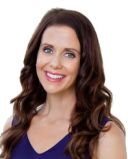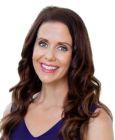Executive Function
Getting Help With Executive Function
How to start supporting your executive function growth.
Posted August 9, 2024 Reviewed by Gary Drevitch

I remember applying for my first job at a party store called Wishing Well. It seemed like an amazing place to work, and I was thrilled to hand in my application (on paper, because it was the 90s after all). I didn’t make it out of the front door before the manager came to say they weren’t interested. “You have no experience,” she sighed. “Sorry.” I walked out of Wishing Well feeling disappointed and confused, wondering how you’re supposed to get your first job if you need to have already had a first job to be hired?
Growing executive function can feel like that. You must use executive function skills to mindfully and systematically develop your executive function. For example, you need to be able to prioritize which skills to develop, plan ways to do so, organize so you stick to the plan, flexibly think when you adapt your plan, and tease out what you learn so that you can continue to develop your skills. It can feel like you need executive function in order to grow your executive function.
The upside to recognizing this challenging cycle is twofold: First, it can feel validating to hear that this is a common challenge that you share with many others. Second, being a recognized challenge means that therapists, coaches, and researchers have innovated solutions for you.
A great place to start is to learn a basic recipe for skill development, knowing you can use it again and again. One “skills recipe” that I love follows a typical coaching cycle: awareness, strategies, practice, and reflection.
We begin by becoming aware of both the challenges and the skills that need to be developed. Next, we brainstorm strategies that can boost or even augment the identified skills. After this is the fun part: experimenting. We take the strategies to what I call the Life Laboratory and see how they go. Often, this step intermingles with the final step, which is to reflect and adjust, paying special attention to what we’re learning about our brains. When we can tease out what went right or what our brains responded to, then we start the next strategy cycle with some insider information; we will know what to lean into because we’ve learned what helps us best.
I know several people who draw or list out the coaching strategy cycle, providing a visual for themselves, an anchor to which they can return when life gets confusing or overwhelming. You can even annotate the cycle with the strategies you discover along the way. For example, if you know the awareness part is also a space in which you may linger (if you have a brain that goes down internet rabbit holes like mine), you may write yourself a note to research only for a day or two before moving on to strategies.
As you begin to become more aware and learn about executive function, there are numerous online and in-person resources to support you. Psychology Today has many articles and tips, and the ADHD organizations CHADD and ADDA share tools and support for executive function. (You can have executive dysfunction without having ADHD, but ADHD is closely associated with executive function challenges.) In addition, experts like Seth Perler have YouTube channels and online events like the Executive Function Online Summit (TEFOS) to help parents support their teens with executive function needs.
Building your executive function may feel daunting, but you are not alone. Relying on the coaching cycle and leaning into available resources can provide hope, inspiration, and tools to continue your growth and ultimately thrive.
To find a therapist, visit the Psychology Today Therapy Directory.


